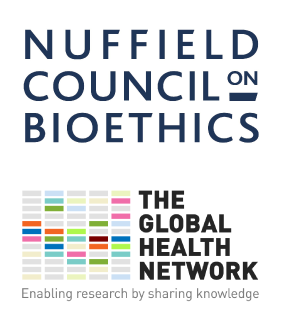This specialist short course explores some of the core ethical issues that arise in the conduct of research in global health emergencies – from outbreaks of infectious diseases to natural and human-made disasters. It is entirely based on the peer-reviewed Nuffield Council on Bioethics’ report Research in global health emergencies: Ethical issues (published January 2020). The Nuffield Council report is cited as a core document underpinning Ethical standards for research during public health emergencies: Distilling existing guidance to support COVID-19 R&D, published in March 2020 by the WHO Working Group on Ethics & COVID-19.
Emergencies are particularly challenging contexts in which to conduct health-related research – and yet research plays a critical role in informing and improving effective emergency response. While research norms and standards remain an important guide to practice, careful and nuanced consideration is required in order to apply these norms and standards appropriately in exceptional circumstances.
This course focuses on the particular challenges that arise in emergencies, and should be read in conjunction with relevant national and international ethics guidance and regulatory frameworks for health-related research with human participants. It also highlights how the ethical issues that arise in emergencies may sometimes go beyond those covered in traditional research frameworks, including for example, important considerations of duties of fair collaboration that arise between researchers, and duties of care to those working on the frontline.
Use and reproduction of these materials:
These eLearning materials are copyrighted by The Nuffield Council on Bioethics. You are free to share or adapt this material for non-commercial use, but you must attribute it to the Nuffield Council on Bioethics.
Your feedback is greatly appreciated; please take a couple of minutes to tell us your thoughts on this course:

